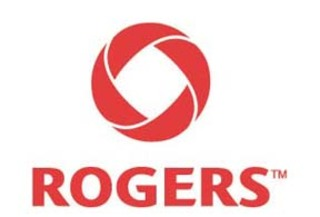
Finance News –The AMEX Bank of Canada, founded in 1853, is Canada’s largest financial institution. It will employ around 1,700 employees in several locations by December 2020. It moved its headquarters from Markham, Ontario, to Toronto in 2015, and added an office in Hamilton, Ontario. Following an order in council granted by the Brian Mulroney administration on November 21, 1988, the bank began operations as a bank on July 1, 1990. Normally, federal banking policy prohibits American Express from operating as a bank.
Amex is a Schedule II bank under the Bank Act, which means it cannot charge you any fees for making foreign currency payments. As a result, you should be informed of the conversion fees. The exchange rate for each currency is determined as a percentage of the total value. Furthermore, from 1993 to 2003, Amex did not disclose its conversion charges in cardholder agreements. As a result, because Amex has not disclosed the conditions of the agreement, you cannot be confident whether or not a cardholder will face a conversion charge.
Furthermore, Amex is not required to make reparation payments to non-consumer class members. Although this is a fair result for consumers, Amex’s unwillingness to pay compensation to non-consumer class members is not a valid explanation. One side benefited unfairly from restitution. As a result, the trial judge did not make a mistake in refusing Amex’s application.
Mortgage by AMEX Bank of Canada

Another issue that has previously arisen is the conversion charge. Amex’s fees are higher than the average interest rate, and they do not make this fact known to their customers. Despite the fact that these charges are disclosed in the agreements, they continue to apply. Unlike other credit card companies, Amex’s cardholder contracts do not include the required disclosures. Amex is responsible for changing the law to prevent them from charging conversion fees.
The court must decide whether the company was obligated to pay the conversion charge. The court must decide whether Amex was obligated to pay the conversion charge even if the consumer was not. The case also requires Amex to reimburse the conversion fees it collected from customers between 1993 and 2003. Its decision is a significant victory for Amex shareholders. This is the first time a successful lawsuit against a Canadian bank has been filed.
Amex Canada is committed to equality principles. This means that employees are encouraged to express their personal interests and take charge of their professional development. Unlike many other companies, Amex Canada is committed to creating inclusive workplace cultures that foster a sense of belonging. AMEX has a number of Colleague Networks across the country, including PRIDE+ and Families at Amex. Women’s Interest and Families are two of Amex’s most popular categories.
The court ruled in favor of the American Express bank. The court’s decision in this case concerns an instance in which Amex failed to meet its obligation to pay conversion charges. This lawsuit stems from Amex’s wrongful conversion charges, which have been in effect for more than two years. Although Amex has denied the conversion charges, it has not denied that it owes restitution to its cardholders.
Amex failed to disclose its conversion charges to cardholders in this case. The court determined that Amex erred in failing to disclose the charges and in failing to provide all relevant evidence to the court. It also claimed that Amex benefited from selling its products. As a result, the BMO Decision holds that the relevant CPA provisions apply to Amex. It also ruled that Amex had no defense because its contract had not been null and void.
Amex was found to have violated Section 12 of the CPA and the CCQ by the trial court. This ruling essentially states that Amex must reimburse all conversion fees collected from customers between 1993 and 2003. The court did not rule on punitive damages because the non-consumer class members were not covered by the CPA. It has ruled that under the CCQ, Amex must reinstate these conversion charges to all affected cardholders.








